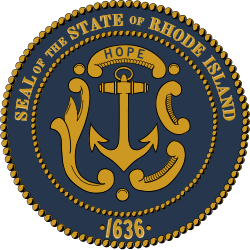| ||||||||||||||
| ||||||||||||||
| ||||||||||||||
The 1777 Rhode Island gubernatorial election was held on April 2, 1777, in order to elect the governor of Rhode Island. Incumbent Independent governor Nicholas Cooke won re-election as he ran unopposed. The exact number of votes cast in this election are unknown. [1]

